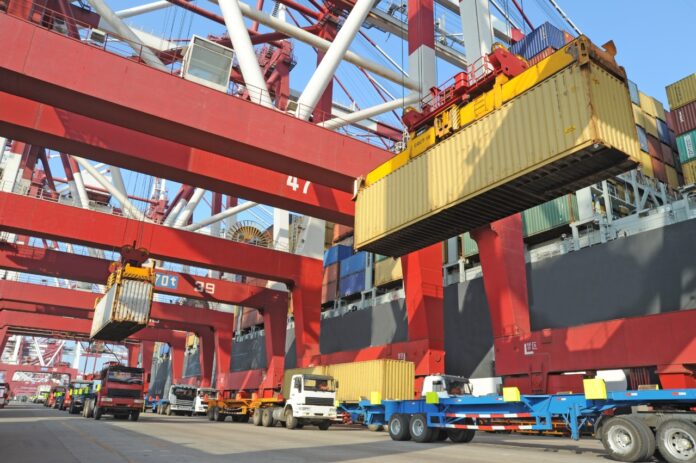RIYADH: As of 2020, China replaced the EU as the Gulf Cooperation Council’s largest trading partner. Saudi Arabia was China’s top supplier of crude oil in 2021. Its neighbor, the UAE, has become an important platform for re-exporting Chinese goods into the region and Africa.
Additionally, Qatar has become an essential natural gas supplier to China.
“There is a very strong China moment in the GCC that has been built over the past 15 years of (trade) relations,” said Mohammed Al-Sudairi, head of the Asian Studies Program at King Faisal Center for Research and Islamic Studies, in an interview with Arab News.
He pointed out that the general assessment across the GCC is that relations with China are much more important than before, “as it has become a top partner at the level of the bloc.”
China is also playing a key role in the development of the region’s non-oil sectors, according to Robert Mogielnicki, asenior resident scholar at the Arab Gulf States Institute in Washington.
The researcher believes that strong complementarities exist between China and the GCC across many sectors. These include tourism, telecommunications, artificial intelligence, smart cities, and renewables, among other technology-driven industries.
Reciprocity, mutual understanding and predictability are the most important aspects of GCC-China relations, said Tang Tianbo, a research fellow at China Institutes of Contemporary International Relations, known as CICIR, in an interview with Arab News.
‘Win-win relationship’
“GCC is vital for China’s energy security while China provides GCC with a stable market for exports. It is a win-win relationship,” he said, adding that the GCC and China never impose anything on each other.
“Both sides recognize and defend each other’s independence and own choices,” said the Chinese researcher, while calling the relationship “pragmatic, stable and ever-growing.”
“This is highly valuable in a world full of uncertainty,” Tianbo underlined.
The GCC member states also compete among each other to capture Chinese trade and investment flows into the region, explained Al-Sudairi.
While the UAE has been at the forefront of this since 2004, other GCC member states have been following the suit by linking their national development plans with China’s Belt and Road Initiative, also called BRI.
He added that they have developed Jazan in Saudi Arabia, Duqm in Oman, and the Silk City in Kuwait as key areas for Chinese companies’ operation and spread Chinese trade and investment across the Middle East and East Africa.
“China’s Digital Silk Road overlaps neatly with technology-oriented development plans across the Gulf but especially in places like Saudi Arabia, the UAE, and Qatar,” said Mogielnicki, in an interview with Arab News.
He pointed out that these governments and their state-owned entities possess significant financial resources and have been tasked with quickly growing the digital economy. “Chinese firms are willing partners, offering cost-effective, high-quality services that can be completed over short timeframes,” added Mogielnicki.
Tianbo underlined that China can bring added value to the GCC in terms of e-commerce, Industry 4.0, new energy, among many others. “China and the GCC can cooperate in fields where China has a competitive edge and the GCC, an interest.”
Economic transformation
The CICIR researcher explained that China’s technology and manufacturing equipment can contribute to GCC’s economic transformation and create more jobs in the non-oil industry.
Sovereign wealth funds are also strengthening China-Gulf relations.
For example, Abu Dhabi’s Mubadala, China Development Bank Capital, and China’s State Administration of Foreign Exchange set up a $10 billion UAE-China Joint Investment Fund in 2015. Recently, Gulf sovereign wealth funds are increasingly allocating a larger share of their portfolios toward China.
Yet, bilateral relations still face many challenges ahead.
The GCC has failed to fully integrate into the Chinese Belt and Road Initiative.
However, Mogielnicki said, “It’s not so much that the BRI has failed to expand to the GCC, but rather that the GCC is not quite a central component or ultimate destination of the BRI’s primary economic corridors.”
There are certain projects and initiatives in the GCC that are branded as part of the BRI. But the research scholar said he is skeptical of the BRI bringing an economic windfall to the region over the coming years.
“It is important to remember that the BRI emerged within the context of growing Sino-Gulf economic ties — it wasn’t the starting point of strong economic linkages,” he added.
A lack of economic diversification continued to prevail in the Gulf, despite government efforts to do so.
In the GCC, the oil and gas sector still dominates the economy and represents a majority of countries’ revenues. This creates an indirect dependency upon China, given that it is considered a major energy consumer.
Most Gulf countries rely on different trading partners for crude oil exports. However, Oman is highly dependent on China, which purchased 83 percent of Oman’s oil shipments in the first half of 2021, according to figures provided by Mogielnicki.
He explained that strength in bilateral relations ultimately comes through diversification — primarily diversifying trade flows or foreign investments.
“Gulf Arab economies would benefit from a more diversified mix of exports — beyond hydrocarbon commodities — to China. Gulf officials and business people also want to see more Chinese investments in non-oil areas of their economies,” added Mogielnicki.
Chinese capital
Additionally, attempts to lure Chinese capital have failed to gain momentum as the Middle East managed to attract only 2 to 3 percent of Chinese investments in the last decade.
For Tianbo, the GCC is perceived as a high-end market with considerable purchasing power, a vivid desire for new products and intense competition.
“Companies have to try and provide their best products and service to succeed. Compared to Western countries, China is a latecomer in the GCC, and there is a lot to learn and adapt,” concluded the researcher.

